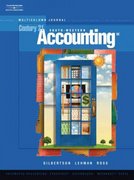Question
RENDER AN OPINION ONLY ON THE ARTICLE Metro Manila (CNN Philippines, July 29) Streaming Netflix shows and shopping online may soon be more costly amid
RENDER AN OPINION ONLY ON THE ARTICLE
Metro Manila (CNN Philippines, July 29) Streaming Netflix shows and shopping online may soon be more costly amid the pandemic.
The House Committee on Ways and Means on Tuesday has approved a bill imposing a 12 percent value-added tax on digital transactions in the country.
The bill defines value-added tax as an indirect tax which may be shifted or passed on to the buyer, transferee, or lessee of the goods, properties, or services.
The panel, led by Albay Rep. Joey Salceda, has approved a substitute bill which will amend the National Internal Revenue Code of 1997, by taxing digital service providers operating through online platforms.
This means foreign corporations such as Netflix, Spotify, and others will have to pay for and impose VAT on their services.
"Why should they be exempted? But when you pay canned goods you pay 12 percent?" Salceda told reporters.
The unnumbered measure seeks to subject to tax online licensing of software, mobile applications, and provision of digital content such as music and information.
It will also include online advertisements, e-learning and online courses, and subscription and payment processing services.
Third parties that act as conduit for digital goods and services or receive commission from transactions will also be taxed, according to Salceda.
Nonresident digital service providers are liable for assessing, collecting, and remitting the VAT on transactions that go through its platform.
The panel-approved bill is a substitute to measures earlier filed by congressmen, including Salceda's House Bill 6765 or the "Digital Economy Taxation Act of 2020," in a bid to raise more revenues to fund the government's COVID-19 response.
According to Finance Assistant Secretary Dakila Napao, the government will earn as much as 10 billion from the measure.
Salceda clarified that small businesses will continue to be VAT exempt, and 0.04 percent of all revenues from the proposed measure will come from the bottom 20 percent of the population.
"In other words, this will not be felt by the most vulnerable households, and will be felt only very mildly by the richest households," he said.
With the committee's approval, the measure may now be endorsed for plenary action to allow further deliberations among lawmakers.
Step by Step Solution
There are 3 Steps involved in it
Step: 1

Get Instant Access to Expert-Tailored Solutions
See step-by-step solutions with expert insights and AI powered tools for academic success
Step: 2

Step: 3

Ace Your Homework with AI
Get the answers you need in no time with our AI-driven, step-by-step assistance
Get Started


